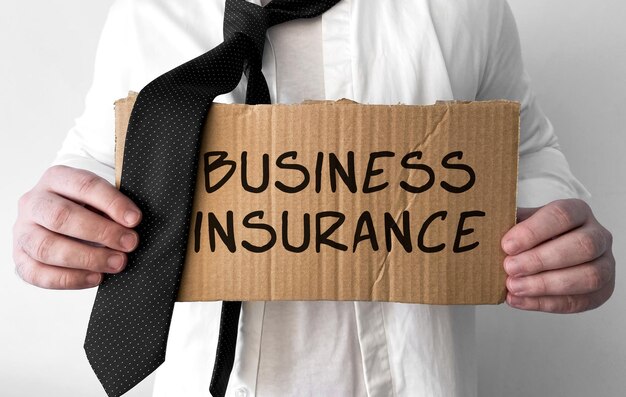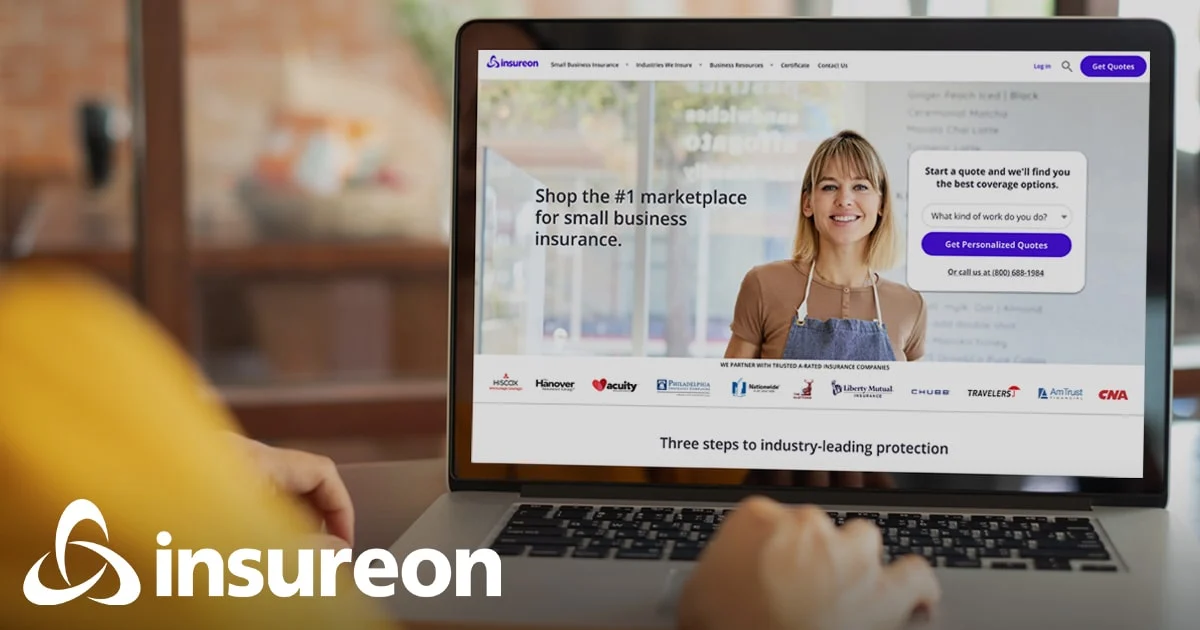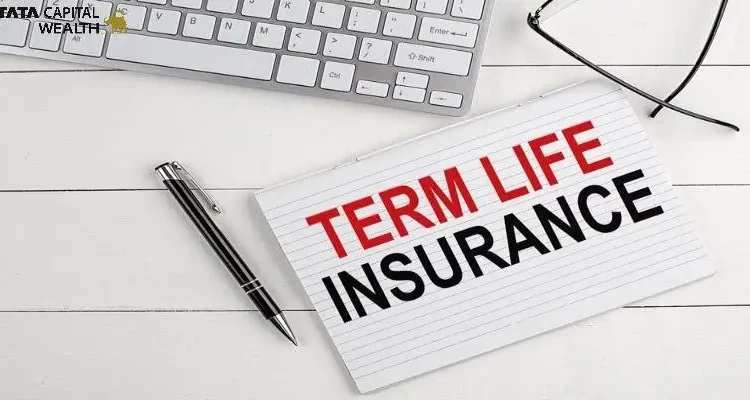Many entrepreneurs in Texas believe that insurance is just another expense, but consider this: the right small business insurance can be the difference between weathering a storm and being forced to close your doors. As the Lone Star State continues to lead the nation in job growth, adding a staggering 369,600 new positions between December 2022 and December 2023, the need for comprehensive coverage has never been more critical. In a state known for its entrepreneurial spirit, understanding the nuances of the best small business insurance can empower you to focus on what you do best—growing your business.
Toc
- 1. Understanding the Importance of Insurance for Texas Businesses
- 1.1. The Foundation: General Liability Insurance
- 1.2. Safeguarding Your Employees: Workers’ Compensation Insurance
- 1.3. Protecting Your Physical Assets: Commercial Property Insurance
- 1.4. Shielding Your Expertise: Professional Liability Insurance (E&O)
- 1.5. Defending Against Cyber Threats: Cyber Liability Insurance
- 1.6. Covering Your Fleet: Commercial Auto Insurance
- 2. Finding the Best Small Business Insurance Companies in Texas
- 3. Optimizing Your Small Business Insurance in Texas
- 4. Frequently Asked Questions
- 4.1. What are the minimum insurance requirements for small businesses in Texas?
- 4.2. How much does small business insurance cost in Texas?
- 4.3. Can I get small business insurance online in Texas?
- 4.4. What should I do if I need to file a claim?
- 4.5. What resources are available for small businesses in Texas?
- 5. Securing the Best Small Business Insurance in Texas
Understanding the Importance of Insurance for Texas Businesses

In the dynamic Texas business landscape, safeguarding your company requires a strategic approach to insurance. Let’s explore the essential coverage options you should consider:
The Foundation: General Liability Insurance
General liability insurance is a must-have for any business that interacts with the public. This policy can provide coverage for bodily injuries, property damage, and even advertising-related claims. For instance, premises liability covers injuries that occur on your property, while product liability protects your business if a customer is harmed by a product you sell. Personal injury liability covers claims related to slander, libel, or wrongful eviction. Imagine a customer slipping and falling in your Dallas storefront—your general liability insurance could help cover their medical expenses and any resulting legal fees. This type of coverage not only protects your business financially but also enhances your credibility with clients and customers, showing that you are prepared for the unexpected.
Safeguarding Your Employees: Workers’ Compensation Insurance
While Texas doesn’t legally require most employers to carry workers’ compensation coverage, it’s a wise investment that can help cover medical bills and lost wages for employees injured on the job. While workers’ compensation insurance can represent a significant expense for small businesses, it’s essential to consider the potential financial risks of not having coverage. A single workplace injury could result in substantial medical bills, lost wages, and legal fees, potentially crippling your business. Workers’ compensation insurance provides a safety net that can help protect your business from these financial burdens. Consider the scenario of a construction worker in Lubbock sustaining a severe injury while operating heavy machinery. Workers’ compensation insurance can provide crucial financial support for their medical care and lost wages, preventing your business from facing crippling costs. Moreover, having workers’ compensation insurance can foster a positive workplace culture, demonstrating your commitment to employee safety and well-being.
Protecting Your Physical Assets: Commercial Property Insurance
Safeguarding your office, warehouse, or retail space is crucial. Commercial property insurance can help you recover from damages caused by events like fires, storms, or theft. Some small business owners might be hesitant to invest in commercial property insurance due to perceived cost. However, it’s crucial to remember that your business property represents a significant investment, and protecting it from damage or loss is paramount. Without adequate coverage, a fire, storm, or theft could result in substantial financial hardship, potentially forcing you to close your doors. Given Texas’ proximity to the Gulf of Mexico and its susceptibility to hurricanes, flood insurance is crucial for businesses located in coastal areas. A comprehensive commercial property policy should include coverage for flood damage to protect your business from the devastating impact of such events. For instance, if a flash flood in Corpus Christi were to damage your inventory and equipment, this coverage could get your business back on its feet.
Shielding Your Expertise: Professional Liability Insurance (E&O)
Also known as errors and omissions (E&O) insurance, this policy can protect your business from claims of professional negligence or mistakes. For example, if an architect in San Antonio is accused of faulty design work, their professional liability insurance could cover the legal expenses and any settlements. This type of insurance is particularly critical for service-based businesses, as it provides peace of mind that you are protected from claims that could arise from your professional services.
Defending Against Cyber Threats: Cyber Liability Insurance
In today’s interconnected world, data breaches and cyberattacks pose a constant threat to businesses of all sizes, making cyber liability insurance a vital component of a comprehensive risk management strategy. This coverage can help you navigate the aftermath of a cyber incident, covering expenses for notifying customers, providing credit monitoring, and defending against lawsuits. With the rise of remote work and digital transactions, and the increasing number of ransomware attacks targeting small businesses in recent years, securing your business against cyber threats is no longer optional; it’s a necessity. This coverage not only protects your financial interests but also helps maintain your reputation in the eyes of your clients.
Covering Your Fleet: Commercial Auto Insurance
If your Texas-based business owns or operates vehicles, commercial auto insurance is a necessity. This coverage can help protect your company from the financial consequences of accidents, theft, or damage to your fleet. For instance, if one of your delivery drivers in Amarillo is involved in a collision, commercial auto insurance can cover the resulting repairs, medical bills, and liability claims. Additionally, this insurance can extend to non-owned vehicles used for business purposes, providing further protection and flexibility. Some insurers now offer discounts for businesses that use telematics devices to monitor driving behavior, potentially lowering premiums and improving driver safety.
Finding the Best Small Business Insurance Companies in Texas

When it comes to securing the best small business insurance in Texas, researching and comparing offerings from reputable providers is essential. Some top-rated options to consider include:
Nationwide
Nationwide stands out with its A (Excellent) rating from AM Best and a wide range of business insurance products, including comprehensive business owner’s policies (BOPs) tailored to specific industries. The insurer also excels in customer service, ranking first in the 2023 J.D. Power Small Commercial Insurance Study. Their user-friendly online platform allows for easy quote comparisons and policy management, making it a convenient option for busy entrepreneurs.
The Hartford
Known for its financial stability and A+ (Superior) AM Best rating, The Hartford is a solid choice for Texas businesses that need robust property coverage. Its policies can provide enhanced protection against natural disasters, a common threat in the state. The Hartford also offers specialized coverage options for various industries, ensuring you can tailor your policy to fit your specific needs.
State Farm
With an A++ (Superior) AM Best rating and high customer satisfaction scores, State Farm is an excellent option for contractors and other field-based businesses. Its specialized BOP packages for HVAC, roofing, and other trades can provide comprehensive coverage. State Farm’s local agents are also a valuable resource, offering personalized service and expertise to help you navigate your insurance options.
Farmers Insurance
Farmers shines in its commercial auto insurance offerings, making it a good fit for transportation and logistics companies in Texas. It also offers a range of discounts that can help make coverage more affordable. Farmers Insurance provides customizable policies to meet the unique needs of your business, allowing you to select the coverage that best fits your operations.
Travelers
Cyber liability insurance is a growing concern for Texas businesses, especially in the tech and e-commerce sectors. Travelers, with its A++ (Superior) AM Best rating, offers comprehensive cyber coverage and expert support to help you navigate data breaches and other cyber incidents. Their extensive resources and tools for risk management can help you proactively protect your business from emerging threats.
Optimizing Your Small Business Insurance in Texas

To get the best small business insurance in Texas, start by gathering key information about your company, such as your industry, number of employees, and estimated revenue. You can then contact insurance providers directly or use online comparison tools to get personalized quotes. Here are some tips to help you make informed decisions:
Conducting a Comprehensive Risk Assessment
Before selecting your insurance coverage, conduct a thorough risk assessment to identify potential vulnerabilities within your business. Consider factors such as your industry, location, and the specific risks associated with your operations. This proactive approach will help you determine the types and amounts of coverage you need, ensuring that you are adequately protected.
Reducing Risks and Premiums
As a small business owner in Texas, risk management should be a top priority. By implementing safety protocols, maintaining accurate records, and regularly reviewing your insurance needs, you can help keep your premiums down and protect your company from potential disasters.
- Implement Safety Protocols: Establish comprehensive safety measures to minimize workplace accidents. Regular training sessions can help keep safety top of mind for your employees.
- Maintain Accurate Records: Keep detailed records of your business operations, safety procedures, and any incidents that occur. This documentation can support insurance claims and demonstrate responsible risk management.
- Review Your Insurance Needs Regularly: As your business grows and evolves, so too will your insurance needs. Regularly assess your coverage to ensure it aligns with your current operations and risks.
Consider bundling multiple policies with the same provider, as this can often result in discounts. You may also qualify for reduced rates by installing security systems, implementing employee safety training, or taking other proactive measures to minimize risk.
Frequently Asked Questions

What are the minimum insurance requirements for small businesses in Texas?
While Texas doesn’t require most employers to carry workers’ compensation insurance, businesses that own vehicles for commercial purposes must have commercial auto insurance that meets the state’s minimum liability coverage requirements. Additionally, some industries or clients may have specific insurance mandates that small businesses must fulfill.
How much does small business insurance cost in Texas?
On average, small businesses in Texas can expect to pay around $42 per month for general liability insurance, $61 per month for professional liability coverage, and $45 per month for workers’ compensation. It’s important to compare quotes from multiple insurers to find the best rates tailored to your specific needs.
Can I get small business insurance online in Texas?
Yes, many insurers offer the ability to get small business insurance quotes and even purchase coverage online in Texas. This can be a convenient and efficient way to compare options and secure the protection your company needs. Most providers have user-friendly websites that allow you to input your information and receive personalized quotes in minutes.
What should I do if I need to file a claim?
If you need to file a claim, document the incident thoroughly, including evidence, photographs, and witness statements. Contact your insurer promptly to initiate the claims process. They will provide you with the necessary forms and guide you through the steps to ensure your claim is processed efficiently.
What resources are available for small businesses in Texas?
In addition to working with your insurance provider, there are several resources available to support small businesses in Texas. The Small Business Administration (SBA) offers a wealth of information and programs to help entrepreneurs succeed, including access to financing, training, and counseling. The Texas Department of Insurance also provides guidance on insurance requirements and regulations. Additionally, consider joining local business organizations, such as the Texas Chamber of Commerce, to connect with other small business owners and access valuable networking and educational opportunities.
Securing the Best Small Business Insurance in Texas
In recent years, the importance of comprehensive insurance coverage has become increasingly apparent for small businesses in Texas. The impact of the COVID-19 pandemic and the rising frequency of natural disasters, like hurricanes and winter storms, have emphasized the need for robust protection against unforeseen events. This heightened awareness has led to a growing demand for insurance solutions that can help businesses navigate these challenges and ensure their long-term viability.
Protecting your small business in Texas with the right insurance coverage is essential for your long-term success. By understanding the key types of policies, researching reputable providers, and proactively managing risks, you can safeguard your hard work and ensure your entrepreneurial journey is as smooth as possible.
Don’t wait until it’s too late—take the time to review your insurance needs and find the best small business insurance solution for your Texas-based company. With the right coverage in place, you can focus on growing your business with confidence, knowing you have a solid financial safety net to fall back on. By investing in the best business insurance, you are not just protecting your assets; you are also securing the future of your entrepreneurial dreams.





